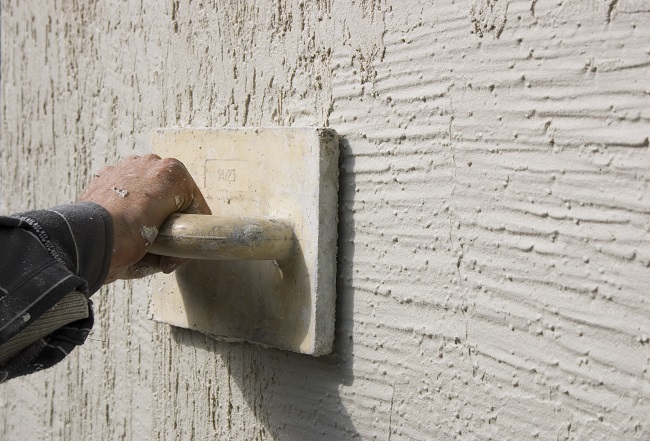3 Key Differences Between EIFS and Traditional Stucco
Stucco has long been a popular cladding for homes and businesses. Yet what many people assume is stucco often turns out to be a far different type of cladding known as exterior insulation and finish system — or EIFS, for short. This article takes a look at three key differences between the visually similar cladding systems of EIFS and traditional stucco.

Material
Stucco has a relatively simple composition, one very much like that of basic concrete. Its principal ingredients are sand, lime, Portland cement, and water. A contractor installs this mixture on the outside of a special waterproof barrier. EIFS also uses an underlying layer made up of waterproof barriers and insulation boards.
Unlike stucco, however, EIFS uses a much different finishing material. The easiest way to think of EIFS is as a synthetic version of stucco. One easy way to determine between the two materials is to head outside and knock on one of your walls. If it feels like you are knocking on solid rock, chances are your wall is composed of stucco. If, on the other hand, your knocking produces a hollow sound, you likely have EIFS.
Porosity
Another key difference between EIFS and traditional stucco has to do with porosity. Stucco has a naturally porous nature, meaning that moisture can migrate from one side of the stucco to the other with relative ease. EIFS, by contrast, is a non-porous material, meaning that moisture cannot migrate through the cladding.
Installation
Because moisture can move through stucco, contractors always install stucco over a special wire mesh. This creates enough space for water to drain out of the wall, rather than remain trapped. EIFS has no such drainage ability, since water cannot naturally move through the cladding.
Yet this lack of drainage can lead to problems if water manages to penetrate the EIFS through cracks or other weaknesses. In that case, owners may find themselves faced with an array of moisture-related problems such as mold and mildew growth, cracked drywall, and rotting wood.
For more information about what type of cladding your business is equipped with, please do not hesitate to contact the industry experts at Cornerstone FCE Services.

